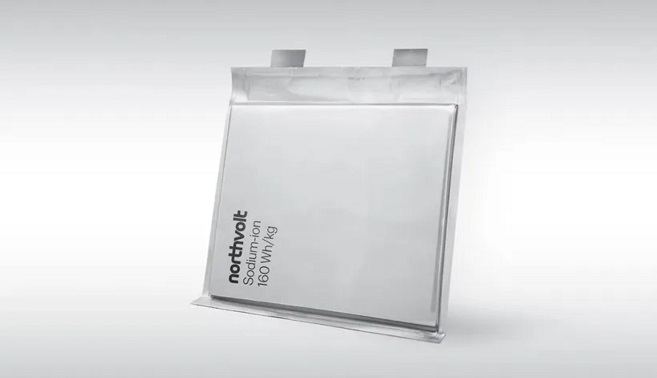France will build a sodium battery factory with a capacity of 5 GWh.
French company Tiamat Energy, a sodium battery manufacturer spun out of the French National Research Centre CNRS, is planning a sodium cell factory with a maximum capacity of 5 GWh.

It is estimated that the investment, which will have the support of the Stellantis Group, among others, will allow the creation of 1,200 jobs in the Hauts-de-France region in the north of France.
Plans indicate that construction of the plant will begin at the beginning of this year, with a production of just 0.7 GWh by 2025, when it is put into operation. Production will gradually increase until its maximum theoretical capacity in 2029.
Initially, Tiamat wanted to make sodium-ion cells for power tools and stationary storage applications. But later, it will also produce a new generation of batteries for electric cars.
Tiamat is preparing a new round of financing, after raising 30 million euros in the first, as the start of the industrial project. The sponsors are new investors Stellantis, Arkema, and MBDA, as well as existing investors and French investment bank Bpifrance.
The third round of financing for the startup was founded in Amiens in 2017. This is part of a broader fundraising campaign in which Tiamat aims to raise €150 million through grants, loans, and other funds from investors.
The company’s press release should have been a different size than Stellantis’ investment. Ned Curic, Director of Engineering and Technology at Stellantis, is only quoted as saying, “Exploring new options for more sustainable and affordable batteries using widely available raw materials is a key part of our Dare Forward 2030 strategic plan ambitions that will see us achieve zero emissions.” net carbon emissions by 2038.

According to Hervé Beuffe, CEO of Tiamat, the funds above will be partly used to construct a battery factory in northern France. The company wants to locate its plant in a region that is booming in the battery sector. In Dunkirk alone, battery cell factories from Renault partners ProLogium and Verkor, a battery recycling plant from Eramet and Suez, and a cathode material plant from XTC and Orano are being built.
However, Tiamat is the only player on this list who opted for sodium-ion batteries. That technology has resurfaced in recent years and would mean an apparent cost reduction in the electric car sector.
Sodium is a low-cost component that replaces lithium, which has experienced a roller coaster in its prices in the last three years. However, there is a drawback: sodium-ion batteries are known to have a lower energy density.
In China, large manufacturers are increasingly turning to sodium batteries: BYD and Huaihai recently signed a contract to build a sodium-ion battery plant in China with an annual capacity of 30 GWh. CATL also plans to produce sodium ion cells. The Chinese startup Zoolnasm also intends to do so starting in 2024.
In Europe, only the Swedish battery cell manufacturer Northvolt has announced its entry into the sodium battery business. A lot is also happening in Germany at the research level: EAS Batteries, Ionic Liquids Technologies and three institutes of the Technical University of Braunschweig recently announced, for example, that within the framework of the NaNaBatt project they are developing production processes for sodium cells, which primarily intended to be sustainable and profitable.
Source – Stellantis
Related Post
- A new study indicates that solar and onshore wind is the cheapest sources and modular nuclear is the most expensive.
- Mercedes-Benz is preparing to present its new MBUX virtual assistant with artificial intelligence.
- This Flow battery technology revolutionizes renewable energy backup systems.